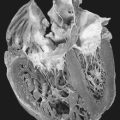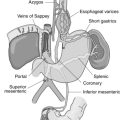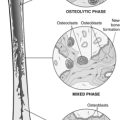63. Neuroleptic Malignant Syndrome
Definition
Neuroleptic malignant syndrome (NMS) is a potentially fatal, iatrogenic syndrome characterized by hyperpyrexia, catatonic rigidity, mentation alteration, and profuse sweating. Rhabdomyolysis, renal failure, seizures, and death have also been reported in association with NMS.
Incidence
Reportedly 0.02% to 3.25% of all patients to whom antipsychotic, neuroleptic, or dopamine-antagonizing medications are administered develop NMS. The box lists risk factors associated with the development of NMS.
Risk Factors for Neuroleptic Malignant Syndrome
• Age (young to middle-aged adult)
• Antipsychotic medication ingestion
• D 2 dopamine-antagonist ingestion
• Dehydration
• Exhaustion
• Male sex
• Neuroleptic medication ingestion
• Psychiatric illness
• Psychomotor activity/agitation
Etiology
Current evidence seems to indicate that an acute reduction in dopamine activity in the brain is the basic mechanism for the development of NMS. Dopamine-antagonist medications have been implicated in the development of NMS. The risk of developing NMS is related to dosage, potency, and rate and route of administration.
An NMS episode may be preceded by a number of rather nonspecific “prodromal” signs (see box on facing page). The onset of an episode typically occurs within 7 to 10 days after the intake of any of the implicated associated medications. Development of an episode of NMS does not indicate an overdose of a medication; rather, NMS seems to develop in reaction to dosages within the therapeutic range. Onset of an episode of NMS mimics the onset of malignant hyperthermia (MH). There are other pathologies that must be considered in the differential process, including local or systemic infection, seizure disorder, thyroid storm, pheochromocytoma, central nervous system tumor,or cerebrovascular accident, as well as ingestion or overdose of a medication or sudden discontinuation of a medication. The box below provides diagnostic criteria for NMS.
Prodromal Signs of Neuroleptic Malignant Syndrome
• Catatonia
• Diaphoresis
• Dysarthria
• Dysphagia
• Hypertension
• Low-grade fever of unknown origin
• Myoclonus
• Obtundation
• Sialorrhea
• Sudden mentation alteration
• Tachycardia
• Tachypnea
• Tremor
Diagnostic Criteria for Neuroleptic Malignant Syndrome
Simultaneous occurrence of five of the following, plus numbers 1 to 4 below:
• Diaphoresis or sialorrhea
• Hypertension/hypotension
• Incontinence
• Increased creatinine phosphokinase
• Leukocytosis
• Mental status change
• Metabolic acidosis
• Myoglobinuria
• Tachycardia
• Tremor
1. Neuroleptic treatment within the previous 2 to 4 weeks
2. Hyperthermia
3. Muscle rigidity
4. Drug-induced systemic or neuropsychiatric illnesses have been ruled out
Signs and Symptoms
• Altered mental status
• Diaphoresis
• Elevated creatinine phosphokinase
• Elevated urinary myoglobin
• Hypertension or hypotension
• Hyperthermia (>100.4° F [>38° C])
• Incontinence
• Leukocytosis
• Metabolic acidosis
• Muscle rigidity
• Sialorrhea
• Tachycardia
• Tachypnea
• Tremor
Medical Management
Early recognition of NMS is critical. As with any negative effect of a medication, immediate discontinuation is required when it is recognized. This is critical because NMS may not manifest itself for 24 hours to 30 days after exposure to a triggering medication. It may well be the case that the decision to discontinue medication was made before the anesthetist became involved in the patient’s treatment. The actions typically initiated by the anesthetist are intense, supportive/palliative measures focusing at first primarily on fluid administration, hydration maintenance, temperature reduction, and cardiac/pulmonary/renal function support as dictated by the developing, ongoing situation. Until definitive diagnosis is obtained, initiation of the facility’s malignant hyperthermia (MH) protocol is warranted (see box below). Because the patient may become agitated as a result of NMS, benzodiazepine administration may be warranted. Nondepolarizing muscle relaxants (NDMRs) may be instrumental in halting the muscle rigidity the patient may experience and may be an aid to a definitive diagnosis of NMS as opposed to MH; NDMRs will relax the patient with NMS but have no effect on the MH patient.
Treatment of Neuroleptic Malignant Syndrome
Immediate Treatment
Initiate the facility’s Malignant Hyperthermia protocol as quickly as possible, including removal of all traces of anesthetic agents, exchange of anesthesia machine if feasible, hyperventilation with 100% oxygen, and cool packs to the axillae and groin.
Initiate administration of dantrolene at 1 to 2 mg/kg, with a maximum dose of 10 mg/kg/day, until diagnosis of NMS is confirmed. These measures will reduce thermogenesis and buy time.
Treatment after NMS Diagnosis Confirmed
Administer bromocriptine at 7.5 to 60 mg/day in divided doses. This drug can only be administered either by mouth or through a nasogastric tube. Symptomatic treatment following the Malignant Hyperthermia protocol should be provided to allow time for the onset of action by bromocriptine. Bromocriptine is a direct dopamine agonist, which will counteract the dopamine antagonists. Hypotension, delirium, and exacerbation of any underlying psychiatric disorder may accompany administration of bromocriptine.
Complications
• Acute renal failure
• Cardiac arrest
• Cardiac failure
• Disseminated intravascular coagulation (DIC)
• Ileus
• Myocardial infarction
• Myoglobinuric renal failure
• Pneumonia
• Pulmonary embolism
• Respiratory arrest
• Respiratory failure
Anesthesia Implications
Because the onset of NMS may occur 24 hours to 30 days after exposure to an implicated medication, the anesthetist may first encounter this disorder after induction of general anesthesia or administration of a regional anesthetic. NMS is so strikingly similar to MH that initial thought and treatment objectives must be directed as if MH is being experienced.
A thorough preoperative history is an essential component of care. The anesthetist should obtain a thorough pharmacologic history for the preceding 30 days, including prescription or over-the-counter self-medication, herbal medications, and illicit drug intake. Mortality for NMS is currently estimated at approximately 11%.







